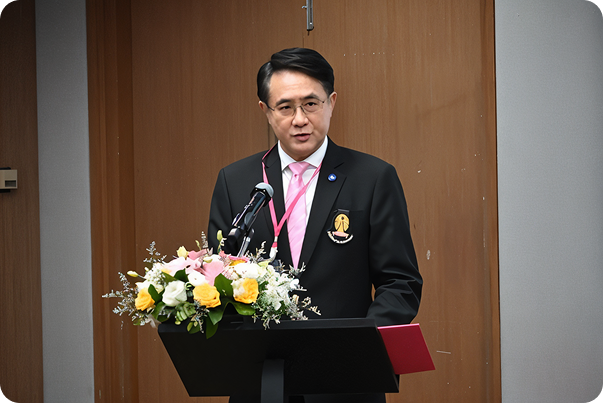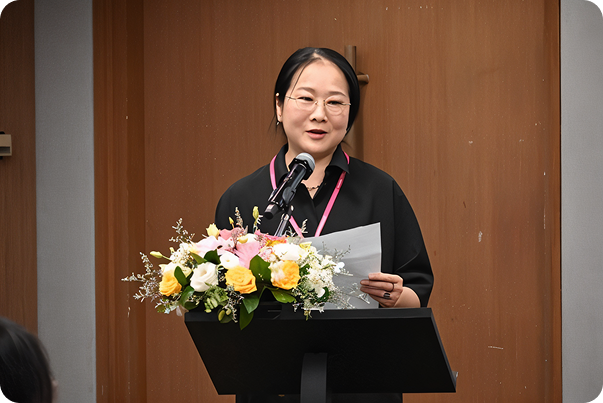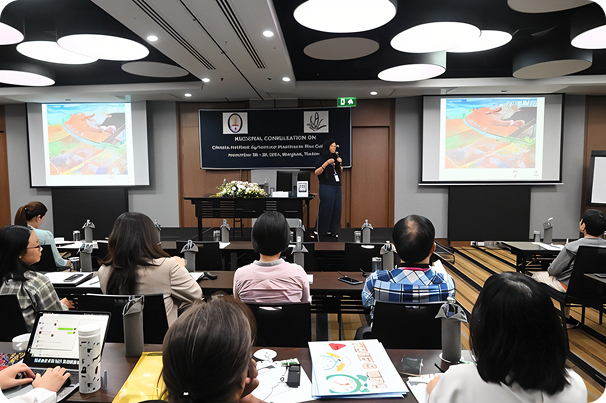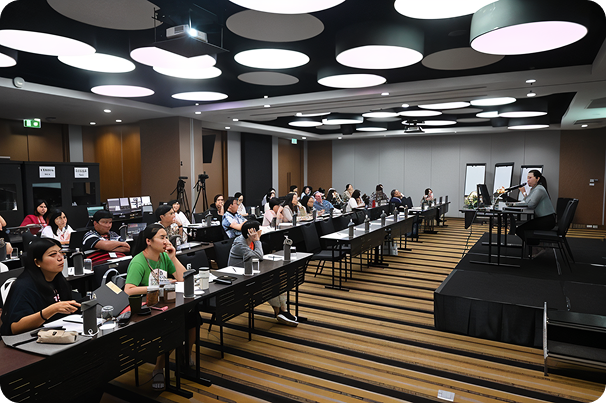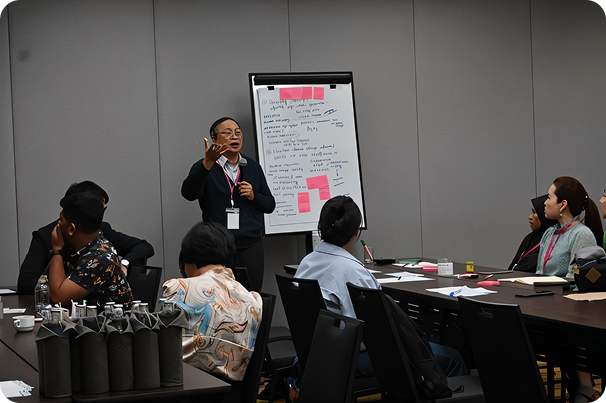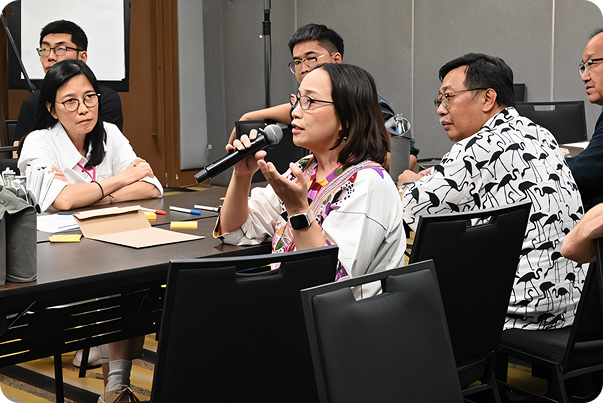Bangkok, Thailand – Over 50 agricultural experts, researchers and policymakers from across Asia convened in Bangkok on 28–29 November 2024 for the Regional Consultation on Climate-Resilient Agricultural Practices in Rice Cultivation. The meeting was co-organised by Chulalongkorn University and the Pesticide Eco-Alternative Centre (PEAC), with support from the EarthCare Foundation (ECF).
The consultation focused on strategies to strengthen food security and promote sustainability across Asia – a region grappling with the dual challenges of climate change and the environmental footprint of rice cultivation. As a staple food for more than half of the world’s population, rice is particularly vulnerable to climate risks and is also a significant source of methane emissions.
Participants from China, Indonesia, the Philippines, Thailand and Vietnam shared up-to-date research findings and policy innovations from their respective contexts.
Dr Tran Thi Dieu (Vietnam, Government of Vietnam) presented the country’s strategy for ensuring food security in the Mekong Delta amidst climate change, with a focus on developing one million hectares of low-emission, high-quality rice and achieving net-zero agricultural emissions by 2050.
Mr Said Abdullah (Indonesia, KRKP) introduced the “Future Project,” addressing the impact of El Niño on rice production and urban food systems, while highlighting youth engagement and green business initiatives.
Mr Tongxing Zhu (China, Institute for Global Decarbonisation Progress) outlined China’s dual-carbon approach in the agri-food sector, focusing on policy innovation to support smallholders, particularly in provinces such as Sichuan and Yunnan.
Dr Jeeranuch Sakkhamduang (Thailand, Thailand Environment Institute) advocated for food sovereignty through agroecology, organic farming, and farmer empowerment, in response to Thailand’s specific climate vulnerabilities.
Ms Normita Ignacio (Philippines, civil society representative) offered a critique of industrial agriculture, calling for a transformative shift towards agroecological and locally driven food systems.
Panel discussions also showcased practical technologies. Dr Hoang Van Phu (Vietnam) presented Vietnam’s “3 Reduces, 3 Gains” and “1 Must, 5 Reduces” programmes aimed at promoting low-carbon rice practices. Ms Ziling Lin (China) highlighted the role of climate-adaptive machinery, such as furrow irrigation, in improving resilience to extreme weather. Mr Alfie Pulumbarit (Philippines, MASIPAG) introduced a farmer-led seed system that promotes agrobiodiversity and climate-resilient varieties, underscoring the importance of community ownership and traditional knowledge.
Throughout the consultation, key practices such as alternate wetting and drying (AWD), organic fertilisation, and participatory seed exchange were frequently emphasised. Broader themes included community engagement, gender and youth inclusion, and the integration of traditional knowledge in building climate-resilient food systems.
In addition to the panel sessions, delegates took part in small group discussions which revealed a number of shared regional constraints – including high input costs, limited awareness of climate-smart practices, insufficient funding mechanisms, and significant knowledge and capacity gaps.
Proposed solutions included strengthening regional collaboration, building the capacity of local farmer networks, diversifying financial support, and enhancing access to sustainable technologies. The discussions reinforced the importance of grassroots-led innovation, supported by enabling policy frameworks and multi-stakeholder partnerships.
A field visit to the Rice Department of Thailand’s Ministry of Agriculture and Cooperatives further enriched the event. Delegates engaged in exchanges with senior officials including Dr Chitnucha Buddhaboon (Deputy Director-General), Mr Sommai Lertna (Rice Production Technology Expert), and Mr Kanoknop Klinla-or (Agricultural Research Officer). The Department presented Thailand’s adaptation strategies for rice production, highlighting advancements in water-efficient irrigation, crop varietal development, and climate-resilient farming techniques. This visit enabled participants to bridge policy, practice and research in the real-world context of Thailand’s rice sector.
The consultation closed with a strong call for enhanced regional cooperation and continued support for farmer-centred, climate-resilient solutions. Partners reaffirmed their shared commitment to building sustainable food systems through knowledge exchange, inclusive policy design, and technological innovation.
Importantly, this event was not an isolated effort, but part of a broader, long-term strategy supported by the EarthCare Foundation. Building on years of ECF’s support for climate-friendly rice demonstration projects in Vietnam and China, the consultation aimed to deepen regional dialogue. By facilitating knowledge-sharing among rice producers, researchers and policymakers, the platform seeks to accelerate the adoption of effective climate mitigation strategies in rice cultivation. The ultimate goal is to promote sustainable livelihoods and improve the resilience of smallholder farming communities in the face of escalating climate pressures. This gathering marks a significant step forward in securing a climate-resilient future for rice farming across Asia.

